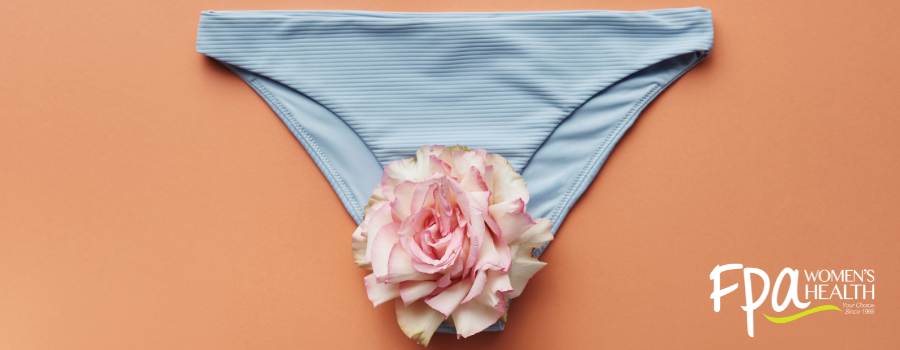
Vaginal health is about balance, specifically pH balance. A healthy vagina is slightly acidic. If the pH of your vagina becomes too basic, unhealthy bacteria can flourish.
As the field of gynecology advances, we are recognizing that just like the health of the mouth is a reflection of the condition of the entire body, so too is the health of the vagina.
Though every vagina is unique, there are a few tips to improve vaginal health.
1. Let your vagina "breath"
If moisture becomes trapped, it can become a source of abnormal bacteria and can alter your pH balance. That means when you're working out or doing other activities that make you sweat, make sure to change out of those dirty clothes.
Undergarments matter as well, as some underwear is more breathable than others. We recommend you avoid wearing thongs, which tend to be constricting. Instead, opt for looser fitting "cotton granny panties" to allow ventilation.
2. Take baths without soaps or perfumes
Water is healing to every cell in your body and can help your vagina flush out irritants and toxins. It is fine to swish water around in your vagina to clean out blood or semen. A clean vagina is likely to be a healthy vagina!
Be careful not to use perfumes or soaps in the bath water because both can cause pH alternations and make infections more likely.
3. Get plenty of sleep
Consistent sleep is crucial to optimal functioning of every organ, especially your endocrine and reproductive systems.
Specifically, sleep is needed to maintain your immune system and restore your energy. If your immune system is not working properly, your body cannot fight off exposure to viruses or bacteria. If possible, go to bed at the same time every night and wake up at the same time every day.
4. Don't smoke cigarettes
People who smoke are more likely to be infected with the dangerous strains of HPV and to develop cervical cancer.
HPV is already extremely common. Chances are if you have sex, you will be exposed to at least one strain in your lifetime. The best protection from HPV and cervical cancer is the vaccine, a series of three injections. However, not smoking cigarettes will also decrease your risk.
5. Have healthy, consensual, protected sex
A vagina that is not lubricated is more likely to have micro-tears that can introduce viruses and bacteria. Make sure you are ready and excited before penetration occurs. Condoms are the best way to reduce the risk of transmission of STIs, but if you and your partner decide not to use condoms, make sure you have open communication about STI screening at a frequency that makes you both feel comfortable.
Even if you follow all of this advice, most people experience an unbalanced or unhealthy vagina at some point in their lives. The good news is that most infections are treatable, and we are here to help! If you experience dryness, itching, or other abnormalities down there, book an appointment with FPA.
Share This
Get Help Now